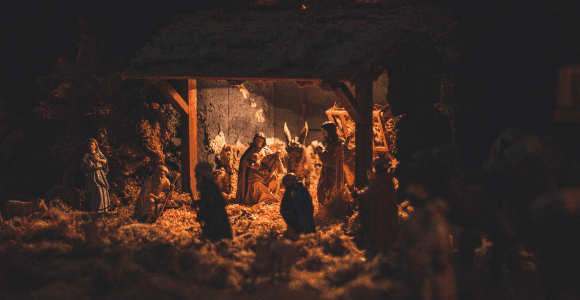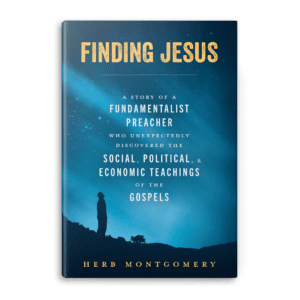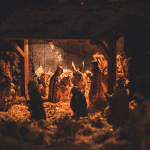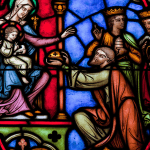
As we wrap our our last part of our last series for Advent this year, let’s continue on with Luke’s overarching theme here.
Further in Luke’s gospel, Jesus again critiques his society. In Luke 14, he gives the parable of the banquet illustrating a preferential option for those societally marginalized. In the parable of the manager who cooked the books when his unsustainable situation ran out, Jesus declares that you can’t serve both God and money (Luke 16:13). This saying makes perfect sense in its social context. Luke 16 also includes the parable of the rich man and Lazarus, which ends by calling the living to listen to the law’s debt forgiveness and the prophets’ critique of economic extraction.
Welcome Readers! Please subscribe to Social Jesus Here.
(Read this series from the beginning at Part 1 and Part 2.)
This is the context in which we also need to understand Luke’s virgin birth. Jesus’ alternative vision for human society competed with the Roman system. And as difficult as it may be for post-Enlightenment minds to grapple with, if Jesus’ kingdom was to compete in that world, Jesus had to be put on the same standing as Caesar. Every Caesar around the time of Jesus (Julius, Augustus, Tiberius) was considered to be a son of God, or even divine themselves. In true Hellenistic fashion, they were each born of human mothers who had a one-night stand with one of Rome’s gods. Judaism’s culture at the time that Luke was written was a kind of purity culture. What better way for Jewish Jesus followers living under Rome to place Jesus on the same level of the Caesars, than for Jesus’ mother Mary to be a virgin who gave birth afer conceived miraculously and sexlessly by the Holy Spirit?
In our culture today, it is easy for us to fixate scientifically on the virgin birth story. But the narrative in Luke’s gospel is not a science presentation. Luke’s world was one where the supernatural was taken for granted. In that context, the Advent virgin birth narrative was an economic and political critique of Rome’s predation and extraction. It presented Jesus’ alternative social vision, the gospel of the kingdom rooted in the Golden rule, enemy love, nonviolence, resource-sharing, wealth redistribution as restoration and reparations, and more. It was a social vision where people committed to taking care of one another as the objects of God’s love and making sure each person had what they needed to thrive.
This brings me to our context today. Today we live in an economic system with a wealth gap that’s growing exponentially. It’s a complex system where the little that people have is being extracted from them more and more and channeled into the pockets of those who already have more than they could ever possible use.
This Advent, what is Jesus’ gospel of the kingdom in Luke saying to each of us? How is it calling us to take up the work of making our world a safe, compassionate, just home for all? Each of us is part of one another. Each bears the image of the Divine. And each is the object of a Divine love that Jesus’ kingdom calls us to participate in for them, too.
 Herb’s new book, Finding Jesus: A story of a fundamentalist preacher who unexpectedly discovered the social, political, and economic teachings of the Gospels, is now available at Renewed Heart Ministries.
Herb’s new book, Finding Jesus: A story of a fundamentalist preacher who unexpectedly discovered the social, political, and economic teachings of the Gospels, is now available at Renewed Heart Ministries.














